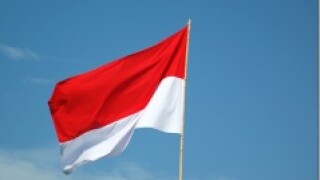Yen
-
International investors are recognising the progress that Abenomics has made in turning around Japan’s recently moribund economy. The long-awaited acceleration in domestic demand is finally taking place, while business confidence is high. But can this progress be maintained while inflation and government finances remain weak and North Korea pushes the region towards conflict?
-
ONGC Videsh (OVL) has closed its dual currency $844m equivalent loan with just one lender joining the dollar tranche in syndication, said a banker who arranged the borrowing.
-
ONGC Videsh (OVL), the overseas investment arm of Indian state-owned ONGC, is seeking a dual currency $844m-equivalent loan from the offshore syndication market.
-
The Republic of Indonesia priced a ¥100bn ($900m) bond on Wednesday, its first public Samurai deal in decades and its maiden fundraise following an upgrade to its credit rating. Although the issuer was forced to drop a 10 year tranche, its transaction was a blow-out, reflecting Japanese investors’ strong interest in foreign paper. Addison Gong reports.
-
The Republic of Indonesia released further guidance for its four-tranche yen transaction on Wednesday, with pricing expected in a week. The Samurai bond comes around the time the sovereign regained its investment grade status from the last of the three major ratings agencies
-
S&P has raised Indonesia’s long-term sovereign credit rating to BBB- from BB+ with a stable outlook, on the back of reduced risks to the country’s fiscal metrics. Seven corporates were also upgraded by the agency last Friday.
-
ONGC Videsh (OVL), the overseas investment arm of Indian state-owned ONGC, has selected three banks for a $500m term loan to replace a bridge from last year. The oil firm is also raising funds in yen, and has picked two Japanese lenders for the financing, said a source.
-
A feeling of cautious optimism surrounds the Japanese economy, according to minutes from the Bank of Japan’s monetary policy meeting in January. This positive mood is encouraging some to suggest that, under the dramatic reforms of prime minister Shinzo Abe, the country is on the right track.
-
-
ONGC Videsh (OVL), the overseas investment arm of Indian state-owned oil company ONGC, is tapping the loan market for longer dated debt to replace a bridge raised by one of its subsidiaries.
-
The leads arranging a syndicated loan of up to $150m for Indiabulls Housing Finance have extended the deadline for commitments.
-
Electricité de France returned to the yen bond market in style last Friday, as it printed a four-tranche deal that included the longest ever Samurai note and the market’s first green bonds.








